Filter by
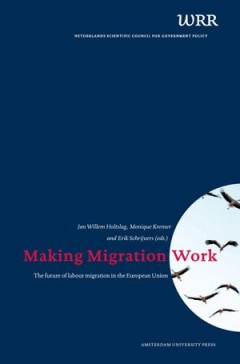
Making Migration Work
The complexion of labour migration in the European Union (EU) has altered in recent years. Not only has there been a shift in the length of time labour migrants spend abroad, but the nature, scale and direction of the migration flows have also changed dramatically. The enlargements of the EU in 2004 and 2007 were influential in this respect. A growing economy and large wage gaps encouraged a la…
- Edition
- -
- ISBN/ISSN
- 9789089645579
- Collation
- -
- Series Title
- -
- Call Number
- 351.81 HOL m
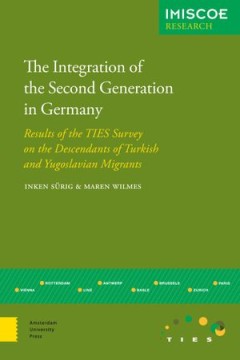
The integration of The Second Generation in Germany: Results of The Ties Surv…
This report on the German results of the Integration of the Second Generation in Europe (TIES) survey looks at the integration process for secondgeneration inhabitants of Turkish and Yugoslavian backgrounds living in Berlin and Frankfurt. Examining the TIES results, Inken Sürig and Maren Wilmes discuss diverse topics such as educational outcomes, segregation and housing, ethnic and cultural or…
- Edition
- -
- ISBN/ISSN
- 9789089648426
- Collation
- -
- Series Title
- -
- Call Number
- 351.81 WIL i
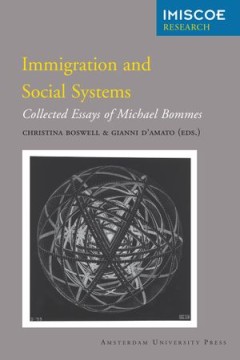
Immigration and Social Systems
Popular science
- Edition
- -
- ISBN/ISSN
- 9789089644534
- Collation
- -
- Series Title
- -
- Call Number
- 351.81 DAM i
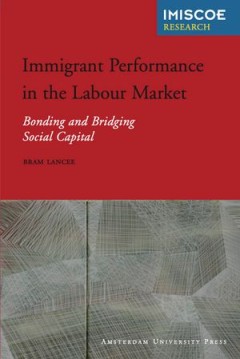
Immigrant Performance in the Labour Market: Bonding and Bridging Social Capital
To what extent can different forms of social capital help immigrants make headway on the labour market? An answer to this pressing question begins here. Taking the Netherlands and Germany as case studies, the book identifies two forms of social capital that may work to increase employment, income and occupational status and, conversely, decrease unemployment. New insights into the concepts of b…
- Edition
- -
- ISBN/ISSN
- 9789089643575
- Collation
- -
- Series Title
- -
- Call Number
- 351.81 LAN i
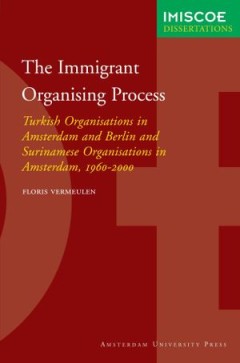
The Immigrant Organising Process: Turkish Organisations in Amsterdam and Berl…
This study focuses on the emergence and persistence of immigrant organisations in host societies. The relevance of immigrant organisations for both the host society and the immigrants themselves has been effectively demonstrated in many different studies. However, the question why immigrant organisations emerge and why they often persist over a long period is not adequately answered. In this st…
- Edition
- -
- ISBN/ISSN
- 9789053568750
- Collation
- -
- Series Title
- -
- Call Number
- 351.81 VER i
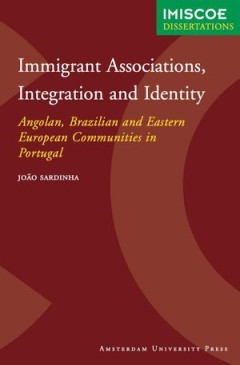
Immigrant Associations, Integration and Identity: Angolan, Brazilian and East…
This book sheds light on the integration processes and identity patterns of Angolan, Brazilian and Eastern European communities in Portugal. It examines the privileged position that immigrant organisations hold as interlocutors between the communities they represent and various social service mechanisms operating at national and local levels. Through the collection of ethnographic data and the …
- Edition
- -
- ISBN/ISSN
- 9789089640369
- Collation
- -
- Series Title
- -
- Call Number
- 351.81 SAR i
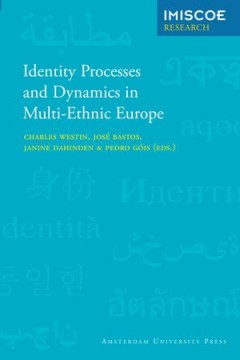
Identity Processes and Dynamics in Multi-Ethnic Europe
This volume is a study of identity processes and identity dynamics in a post-colonial, multiethnic European context that is constantly changing under the pressures of globalisation, migration movements and integration. The authors represent a variety of disciplines: American studies, anthropology, cultural studies, ethnology, history, social psychology and sociology. Eleven of the thirteen chap…
- Edition
- -
- ISBN/ISSN
- 9789089640468
- Collation
- -
- Series Title
- -
- Call Number
- 351.81 BAS i
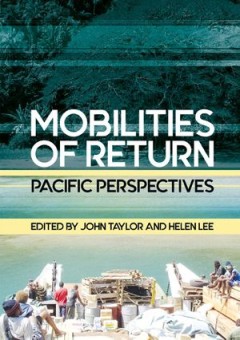
Mobilites of Return: Pacific Perspectives
In recent decades, the term ‘mobility’ has emerged as a defining paradigm within the humanities. For scholars engaged in the multidisciplinary topics and perspectives now often embraced by the term Pacific Studies, it has been a much more longstanding and persistent concern. Even so, specific questions regarding ‘mobilities of return’—that is, the movement of people ‘back’ to plac…
- Edition
- -
- ISBN/ISSN
- 9781760461676
- Collation
- -
- Series Title
- -
- Call Number
- 351.81 MOB m
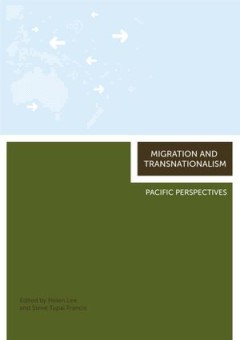
Migration and Transnationalism: Pacific Perspectives
Pacific Islanders have engaged in transnational practices since their first settlement of the many islands in the region. As they moved beyond the Pacific and settled in nations such as New Zealand, the U.S. and Australia these practices intensified and over time have profoundly shaped both home and diasporic communities. This edited volume begins with a detailed account of this history and the…
- Edition
- -
- ISBN/ISSN
- 9781921536915
- Collation
- -
- Series Title
- -
- Call Number
- 351.81 LEE p
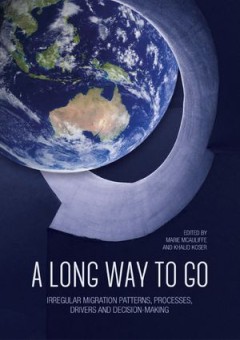
A Long Way to Go: Irregular Migration Patterns, Processes, Drivers and Decisi…
A Long Way to Go: Irregular Migration Patterns, Processes, Drivers and Decision-making presents the findings of a unique migration research program harnessing work of some of the leading international and Australian migration researchers on the challenging and complex topic of irregular maritime migration. The book brings together selected findings of the research program, and in doing so it co…
- Edition
- -
- ISBN/ISSN
- -
- Collation
- -
- Series Title
- -
- Call Number
- 351.81 LON l
 Computer Science, Information & General Works
Computer Science, Information & General Works  Philosophy & Psychology
Philosophy & Psychology  Religion
Religion  Social Sciences
Social Sciences  Language
Language  Pure Science
Pure Science  Applied Sciences
Applied Sciences  Art & Recreation
Art & Recreation  Literature
Literature  History & Geography
History & Geography